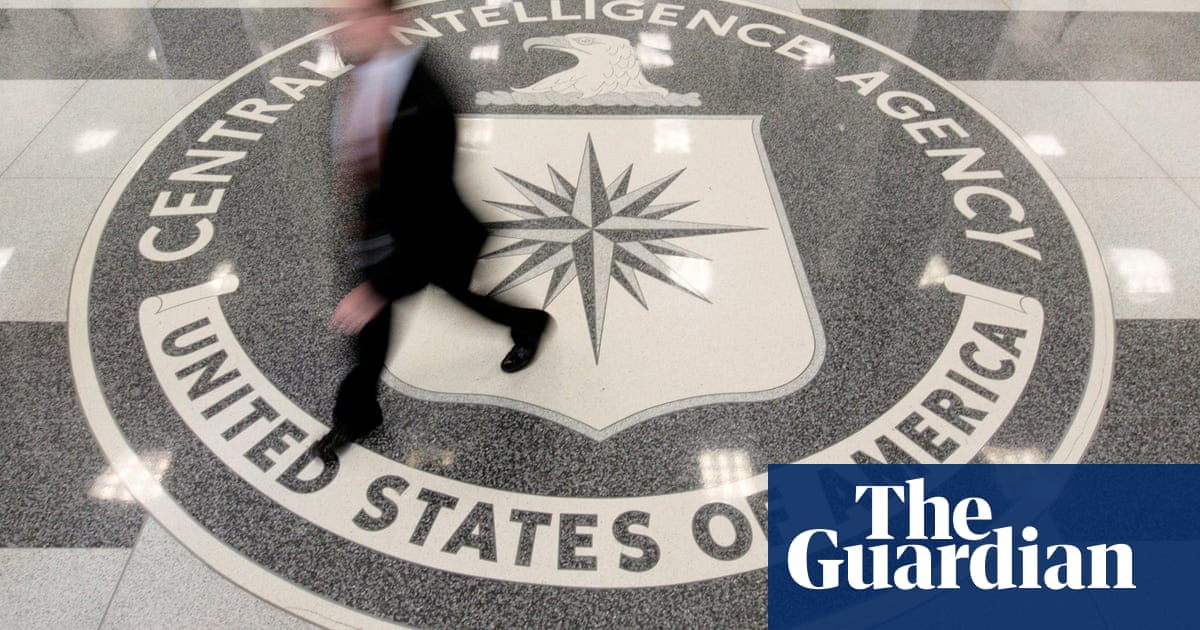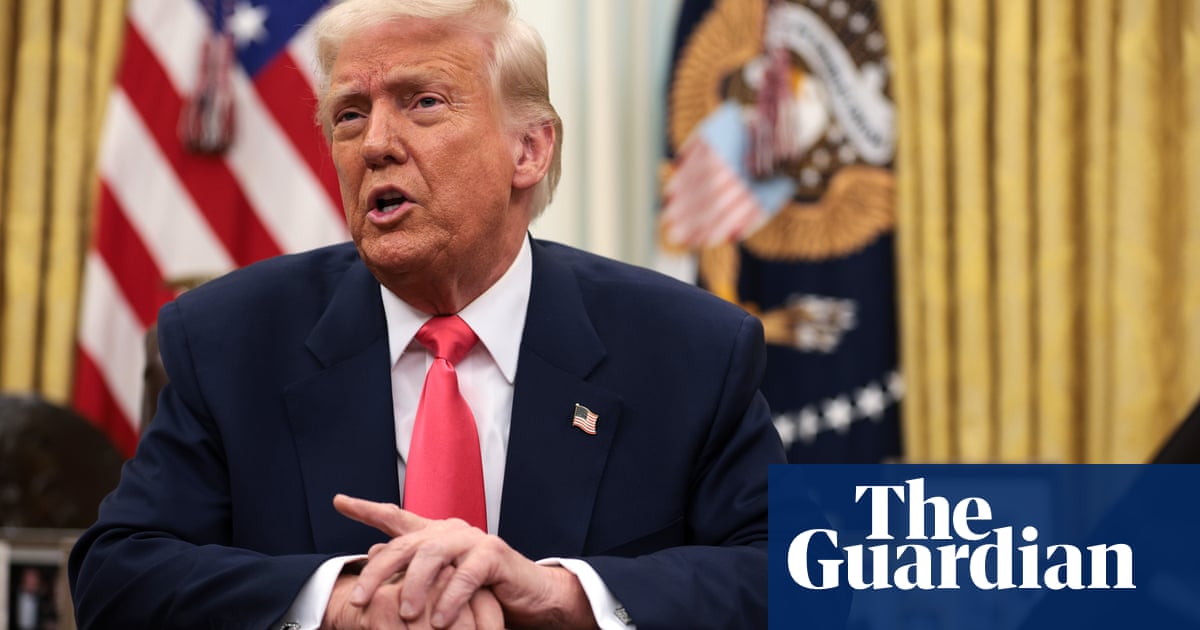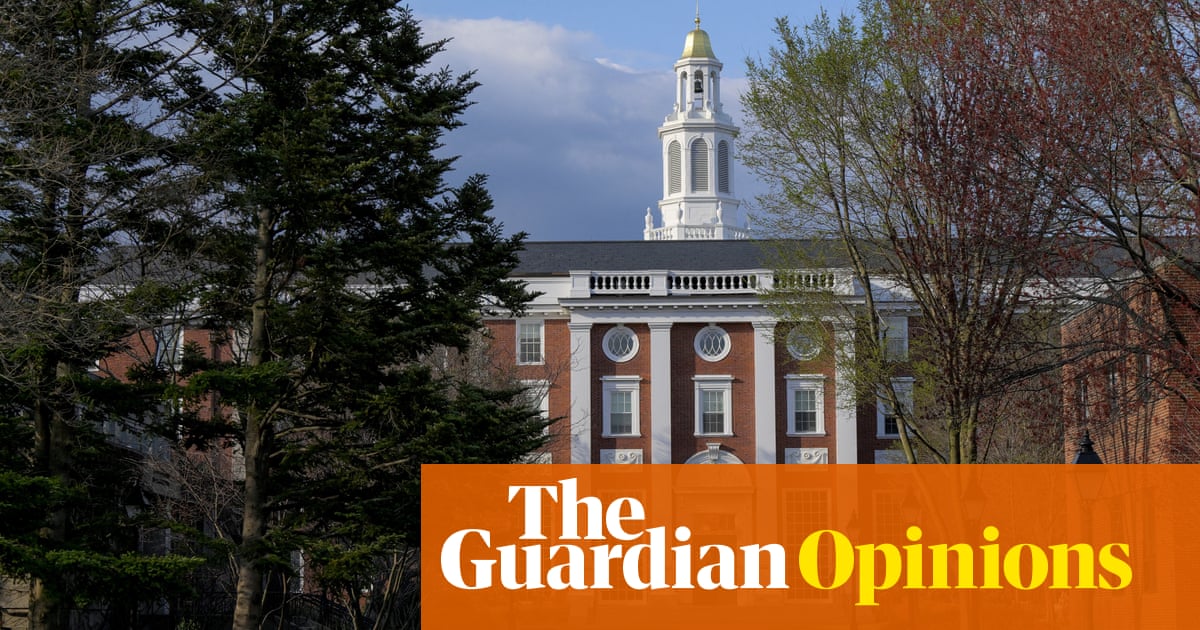Donald Trump’s Department of Justice has taken radical steps to target his political foes, back a harsh agenda against undocumented immigrants and help business allies – steps which underscore its politicization under the attorney general Pam Bondi and undermine the rule of law, say ex-prosecutors and legal experts.
Some even say that the department has in effect become Trump’s “personal law firm”.
Since taking office a second time, Trump has relied on staunch loyalist Bondi and an elite group of justice department lawyers to investigate critics from his first administration plus political opponents and curb prosecutions of US business bribery overseas.
Ex-prosecutors point to how Bondi and the department’s top lawyers have halted some major prosecutions, fired or forced out lawyers who didn’t meet Maga litmus tests, and were instructed by Trump to investigate a key Democratic fundraising vehicle as examples of how Trump and Bondi have politicized the justice department.
Critics note that once Bondi became attorney general, she issued a memo establishing a “weaponization working group”, which pushed a false narrative that investigations by a special counsel into Trump’s efforts to overturn his 2020 election and his improperly retaining classified documents were politically motivated.
The transformation of the Department of Justice under Bondi has put a premium for staff on “personal loyalty” to Trump, say ex-prosecutors, which has damaged the rule of law and provoked multiple rebukes from courts and the resignations or firings of veteran prosecutors.
“The steps Trump and Bondi have taken using DoJ to punish enemies and reward allies while firing those who object radically transforms and politicizes DoJ in a way that not even the worst who have gone before them ever contemplated,” the former federal prosecutor Paul Rosenzweig said.
“Trump’s transmuting DoJ into his personal law firm is, in effect, a rejection of the founding principle of the rule of law.”
Other ex-prosecutors see the department marching in dangerous legal lockstep with Trump’s agenda and damaging its mission to protect the rule of law.
“Bondi and DoJ lawyers have certainly tried to make personal loyalty to Trump the justice department’s guiding principle,” said the Columbia law professor and ex-federal prosecutor Daniel Richman.
Critics note Bondi has also echoed Trump’s dangerous rhetorical blasts against judges who have ruled against his administration’s sweeping and haphazard drive to deport undocumented immigrants by labeling them “low-level leftist judges who are trying to dictate President Trump’s executive powers”.
After the FBI arrested a Milwaukee judge for allegedly obstructing the arrest of an undocumented immigrant, Bondi went on Fox News to threaten other judges who may defy their agenda. “They’re deranged. I think some of these judges think they are beyond and above the law, and they are not. We will come after you and we will prosecute you,” she said.
Hundreds of lawyers and staff in the justice department’s civil rights division are now leaving the storied unit as its focus has shifted to Trump priorities such as pursuing cases against elite universities and student protesters, while curbing some civil and voting rights cases it has traditionally pursued, say critics.
Other actions by the department under Bondi, an ex-Florida attorney general who later worked on Trump’s legal team during his first impeachment trial in 2020, and some elite justice department lawyers reflect its strong allegiance to Trump and have sparked strong criticism.
They include an investigation of two officials, Chris Krebs and Miles Taylor, who served in his first term and clashed with him for, respectively, not backing his false claims that the 2020 election was stolen and for voicing strong concerns in a 2018 New York Times op ed about how Trump threatened democracy.
In another radical move, Trump issued an executive order in April telling the justice department to investigate unverified allegations that ActBlue, a major Democratic online fundraising vehicle, had engaged in improper fundraising schemes.
Trump also reportedly prodded the Department of Justice to drop a five-count criminal fraud prosecution of the New York mayor, Eric Adams, that the elite justice department southern district had worked on for months, as Trump was eager to secure public support from Adams for his immigration agenda in the city.
Some actions also appear aimed at helping allied business interests. In April, the justice department abruptly closed a cryptocurrency unit that was launched in 2022 and had successfully prosecuted dangerous criminal schemes involving North Korean hackers and other fraudsters, but which had come under fire from cryptocurrency leaders who helped fund Trump’s campaign last year.
Trump’s justice department also has paused for six months prosecuting businesses that have been charged with violating the 1977 Foreign Corrupt Practices Act (FCPA), which bars paying bribes to win deals abroad.
Other moves seem to reflect Trump’s enmity towards journalists who report critically about his administration. In a reversal of recent department policy, Bondi revoked journalists’ free-speech protections by greenlighting authorities to force journalists to reveal confidential sources in leak investigations. Meanwhile, Bondi also seems willing to protect political allies, such as when she declined to open an investigation into “Signalgate” despite extensive documentation that top national security officials had improperly shared classified information as an attack was imminent in Yemen against the Houthis.
Ex-prosecutors say that Bondi and the justice department’s willingness to make personal loyalty to Trump paramount damages the rule of law.
Critics note the justice department has been rebuked by federal courts for stonewalling court orders and questions about some of its deportation actions and for not bringing home a Maryland man originally from El Salvador who was sent to a notorious Salvadorian prison as a result of what Ice has called an “administrative error”.
“Never in history has DoJ broken so defiantly from respecting, as it’s obligated to do, the decisions of federal courts,” said the former prosecutor Ty Cobb, who was a counsel in the White House during Trump’s first term. “This is a war that Trump and Bondi are waging against the rule of law.”
Richman noted more broadly that “outside the immigration area, most of what Bondi has actually done so far, however, has been negative – like dropping the case against Mayor Adams and cases against FCPA defendants and firing prosecutors”.
Richman added: “We will soon see how this administration fares when it actually seeks a result in court, even if it’s only defensive. As the proceedings in the recent Maryland deportation case highlighted, courts demand a candor and respect for law that the justice department’s leadership finds inconsistent with the loyalty it demands.”
Some veteran prosecutors who quit the department after Trump and Bondi took office say that the pair’s first moves raised red flags that prompted their departures.
“Bondi has made clear – before becoming attorney general, and since – that she wants the Department of Justice to support President Trump unconditionally,” said Mike Romano, who resigned from the department in late March.
Before he quit, Romano spent almost four years working on the prosecutions of Trump allies who stormed Congress on 6 January 2021 in an effort to thwart Joe Biden’s certification by Congress.
Romano said that the night Bondi was confirmed “she issued a memorandum to all justice department employees in which she threatened to fire employees who refuse to defend the Trump administration’s actions, advance its arguments or sign its briefs. She and her subordinates have made good on those threats by firing people and forcing them to resign.”
Romano stressed that “some of my colleagues were fired, and others were demoted, because they prosecuted people who rioted at the Capitol. At the public integrity section, four of my managers resigned, in lieu of being fired, when they refused to sign a motion to dismiss the case against Mayor Adams. These actions send a clear message to people still at the department: if you want to keep your job, disagreement won’t be tolerated.”
Similarly, Barbara McQuade, a former prosecutor for Michigan’s eastern district who now teaches law at the University of Michigan, warned that Bondi’s memo setting up a “weaponization working group” actually “weaponizes law enforcement and undermines public confidence in government” because it pushes a “false narrative” about the two investigations of Trump by the former special counsel Jack Smith.
McQuade emphasized that “in fact federal grand juries returned indictments in both cases, meaning that they found probable cause that the crimes were committed. DoJ’s Principles of Federal Prosecution prohibit prosecutors from making charging decisions on the basis of partisan politics.”
Pointing to a further symbol of the justice department’s politicization under Bondi, McQuade cited her statement that a federal judge “supported Tren de Aragua terrorists over the safety of Americans” and charged he “cannot be objective” because he issued a temporary restraining order blocking deportation of Venezuelan men to El Salvador without due process.
“There is no evidence to suggest that the judge did anything other than apply the law to the case,” McQuade stressed. “He was applying the law to a highly suspect use of the Alien Enemies Act, a statute to be used during wartime.”
Assessing Trump’s politicization of the Department of Justice, Rosenzweig said the department was betraying its historic mission to protect the rule of law.
“DoJ isn’t just another department like agriculture or HHS. It has a unique place in the US government as the home of the ‘rule of law’ and the guardian of what makes America special,” he said.
“Thomas Paine said: ‘In America, the law is king.’ Trump wants to make his word the law and himself the king.”

 German (DE)
German (DE)  English (US)
English (US)  Spanish (ES)
Spanish (ES)  French (FR)
French (FR)  Hindi (IN)
Hindi (IN)  Italian (IT)
Italian (IT)  Russian (RU)
Russian (RU)  14 hours ago
14 hours ago
























Comments